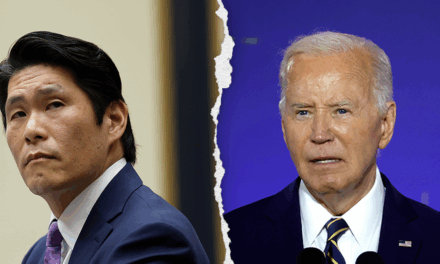A distressing incident unfolded recently at Princeton University when a student reported an alarming confrontation with protesters during an anti-Israel demonstration. The student, who identifies as Jewish, claimed that she was verbally assaulted by some of the protesters, who allegedly referred to her as “inbred swine” and urged her to “go back to Europe.” This incident adds to the ongoing debates surrounding the Israel-Palestine conflict, a topic that has garnered considerable attention on university campuses across the United States.
The student recounted her experience as she approached the group of demonstrators, expressing her views regarding the Middle Eastern nation. It is important to note that during such protests, emotions often run high, leading to heated exchanges among participants and observers. However, the aggressive nature of the comments directed at the Princeton student raised concerns about the climate of tolerance and respect for diverse viewpoints within the academic environment.
“As I tried to express my perspective, I was met with hostility that I never imagined I would encounter,” she stated. “The name-calling, particularly being labeled as ‘inbred swine,’ was particularly shocking and hurtful.”
The incident has provoked strong reactions from the university community and beyond, igniting discussions about the limits of free speech, the importance of civil discourse, and the need for a safe environment for students to express their beliefs. Advocates for free speech on college campuses emphasize the necessity of protecting various opinions, even those that may be controversial or unpopular, while simultaneously calling for respectful engagement and dialogue.
Responses from various groups on and off campus have varied widely. Some organizations have condemned the student’s treatment, arguing that it represents a broader issue of antisemitism that is becoming more prevalent in discussions about Israel and Palestine. Others maintain that such protests are essential for raising awareness about the Palestinian plight and that dissent against Israel’s policies should not equate to hatred or bigotry.
President of the Princeton University Jewish Student Association expressed deep concern regarding this incident, stating, “No student should ever feel uncomfortable or unsafe for expressing their beliefs, particularly on matters of such crucial significance. We are calling for a renewed commitment to fostering an environment of respect and understanding, irrespective of political affiliations.”
Princeton University officials have since responded to the claims, asserting their commitment to ensuring a safe and inclusive environment for all students. A spokesperson for the university noted that they are reviewing the incident to understand the circumstances better while reiterating the importance of respectful dialogue in the university’s shared space.
Unquestionably, this incident illustrates the complexities of discussing sensitive international issues on college campuses. Universities are often seen as arenas for debate and dialogue, where ideas can be shared freely. However, as tensions rise, so does the risk of crossing the line from passionate discourse into the realm of personal attack and animosity.
Furthermore, it raises the question of how universities can best facilitate discussions surrounding contentious topics. For many students, university life should be a time of exploration and growth, not one of fear or intimidation when expressing their beliefs. Clearly defining the boundaries of acceptable speech while allowing for open discussion remains a challenge that institutions must navigate carefully.
Many members of the student body and faculty have also taken to social media to voice their opinions following the incident. A hashtag rallying around themes of solidarity and support for the student has gained traction, showcasing both the outrage and the collective desire for a more respectful approach to discourse among those with differing opinions.
Moreover, dialogues that foster understanding of the historical context behind the Israel-Palestine conflict can play a crucial role in shaping discussions on campuses. Engaging educational programs and panels that present diverse perspectives can help build a foundation of mutual respect, enabling students to express their views without resorting to offensive language. Besides, creating forums where students can exchange thoughts in moderated environments could significantly contribute to minimizing hostility.
As discussions on Israel and Palestine continue to gain traction across college campuses, incidents such as the one involving the Princeton student may serve as a catalyst for broader conversations regarding the responsibilities of students, faculty, and university administrators. Challenging students to confront their implicit biases, to engage constructively with opposing views, and to practice empathy can facilitate not only a more enriching educational experience but also a safer, more inclusive campus environment.
As Princeton grappled with the fallout from this incident, it became evident that fostering a commitment to understanding and integrity is paramount. Institutional leaders believe that by promoting campaigns and programs centered around tolerance, diverse viewpoints, and respectful engagement, they can work toward creating an environment where students feel secure in sharing their perspectives.
Ultimately, the responsibilities lie not only with the institution but with the students themselves. Creating a culture where open discussion is welcomed, respected, and nurtured will require efforts from all the community members. Students should engage with one another while being mindful of how their words and actions can impact the intertwined fabric of their university community.
As the Princeton incident continues to resonate, it undoubtedly raises an important question about the future of dialogue on college campuses. Will students and faculty successfully cultivate an environment of mutual respect, or will such incidents proliferate in a climate of division? Only time will tell, but it is already clear that the need for an open, honest, and respectful exchange of ideas has never been more pressing.
































